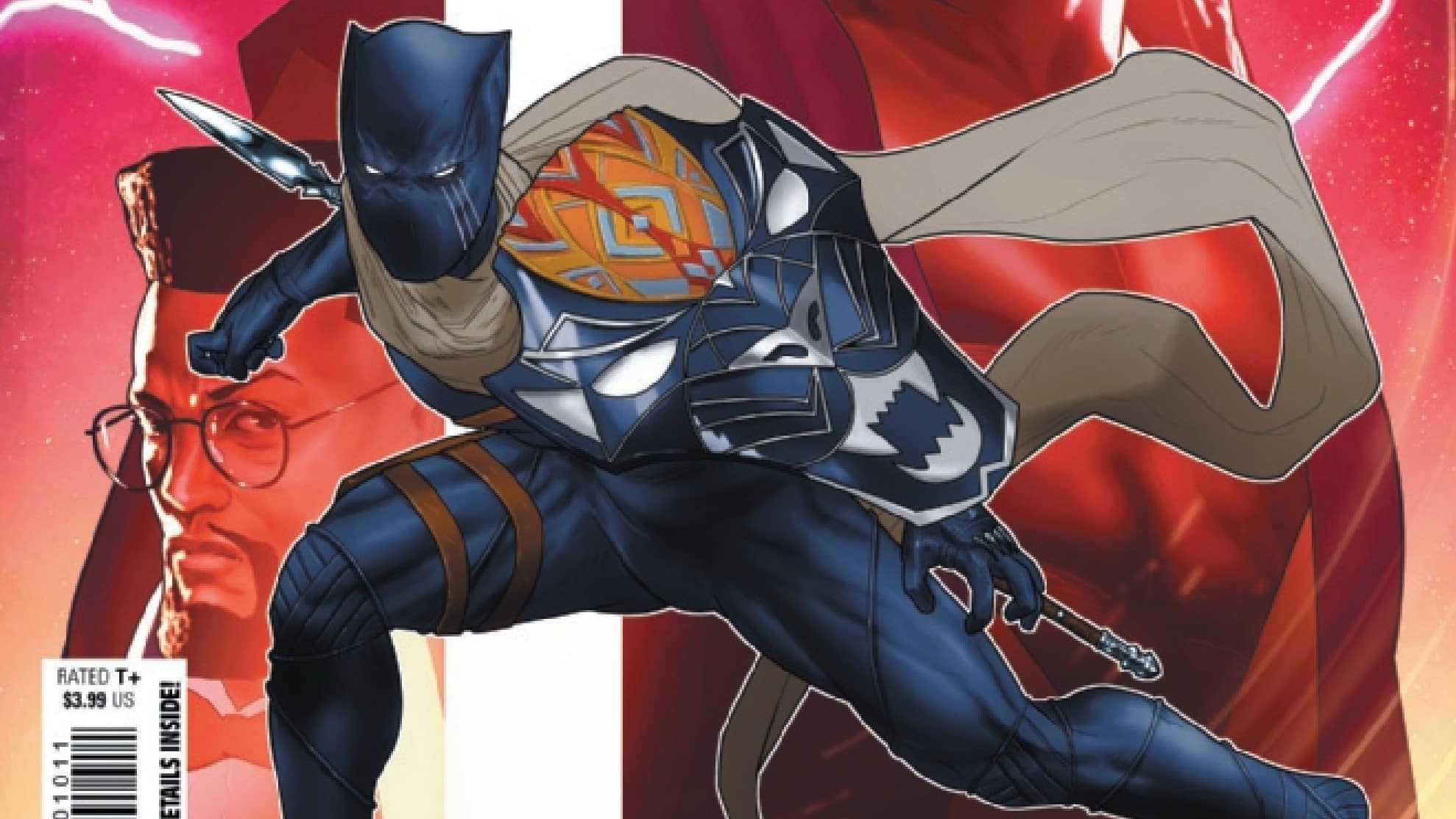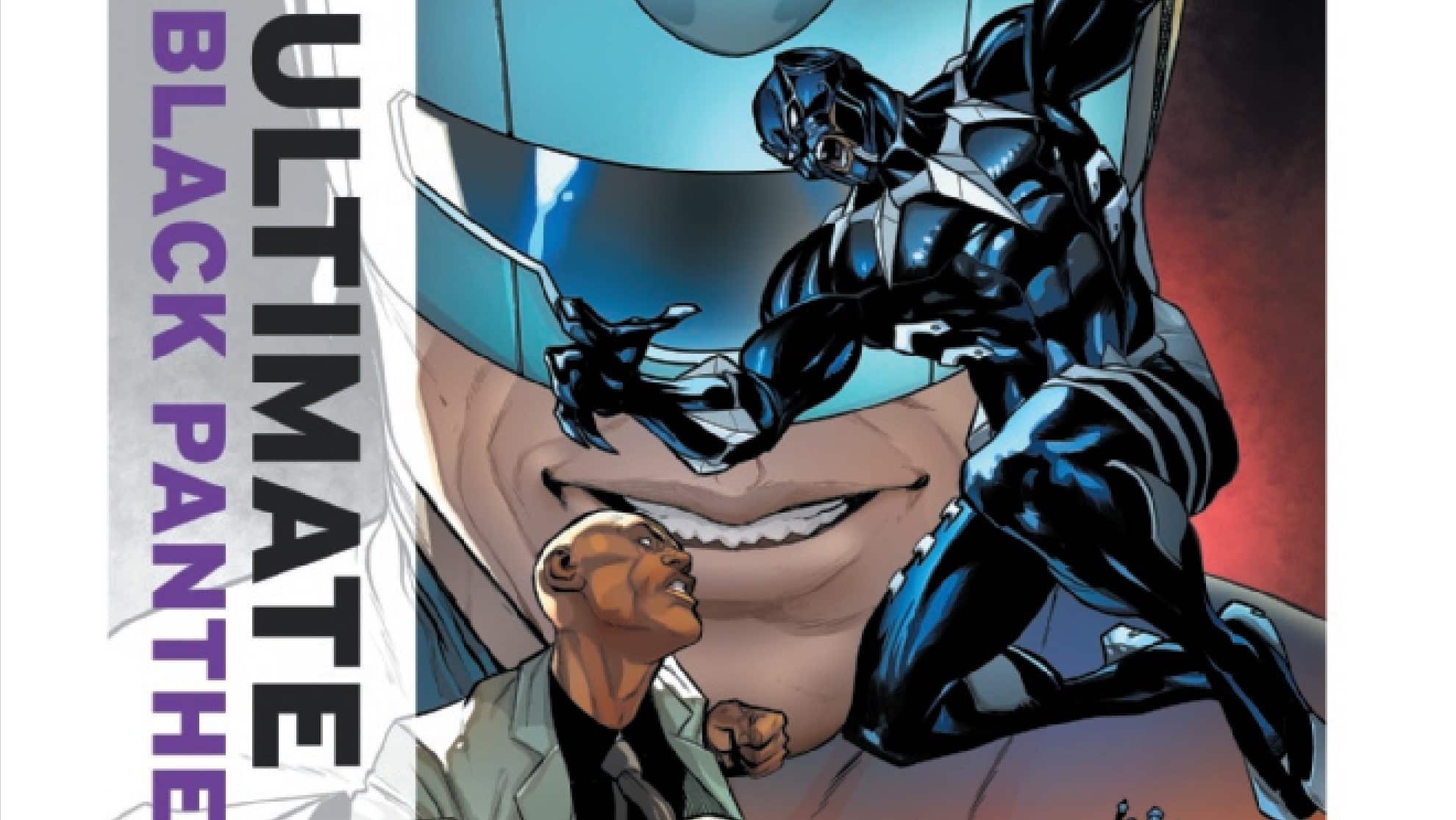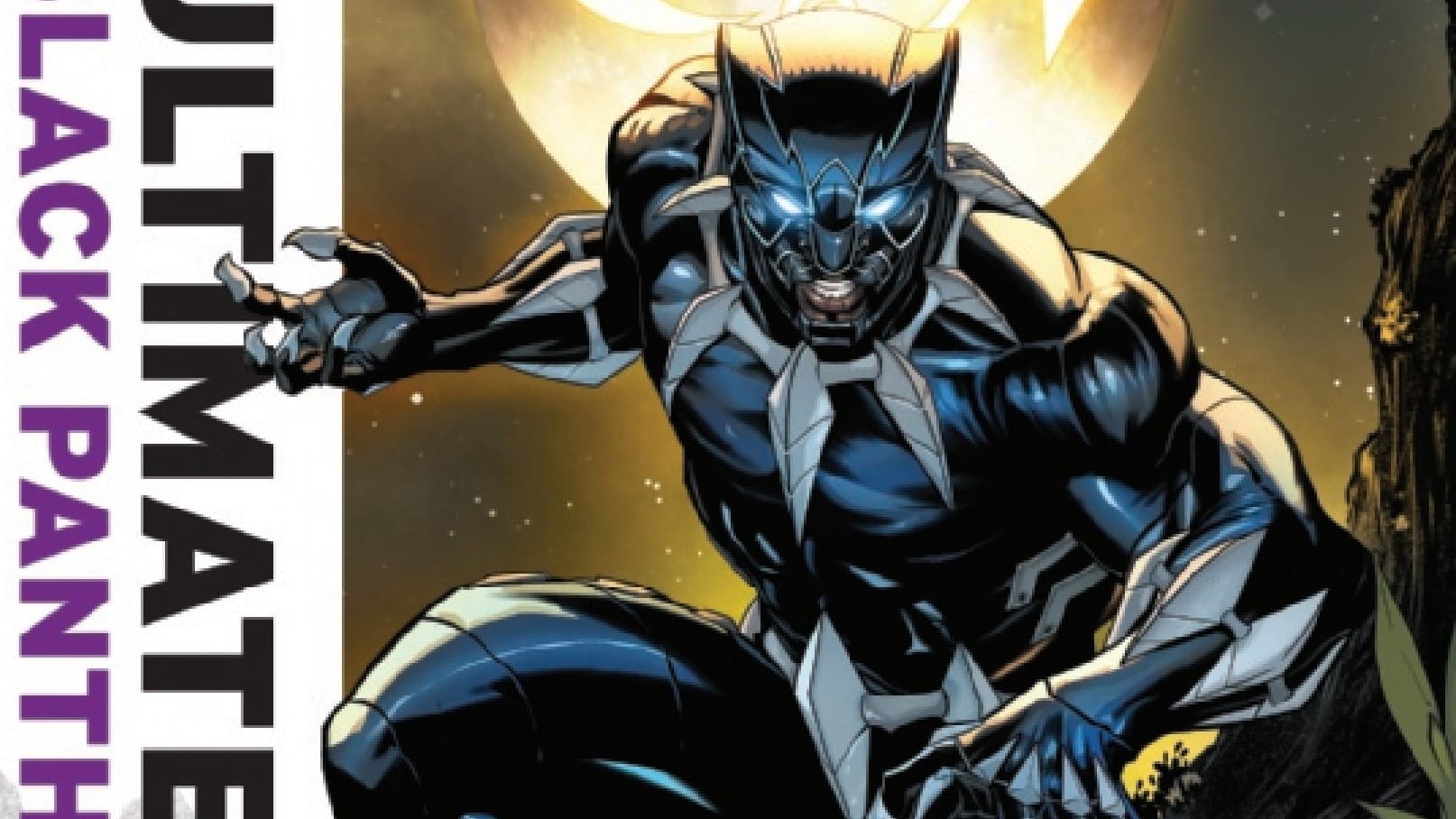T’Challa has ascended the throne, but is still faced with the choice his father tried to make: keep Wakanda closed off and safe, or open up and offer aid to the rest of the world? Black Panther: Legends #4 written by Tochi Onyebuchi, pencils by Enid Balám and Ramón Bachs, inks by Roberto Poggi and Oren Junior, colors by Ian Herring, letters by Joe Sabino.
A boy loves his father. His father is a King; that makes him a prince, and all the riches of the King – the Kingdom itself – will be his. This is as much a gift as a responsibility, of course, but for a young boy, this young prince, responsibility is just an idea.
The boy, like so many boys, like too many boys, saw his father killed in front of him. Coldly, callously…fearfully. The boy runs from his right to rule, from that foreign idea of responsibility.
He tries to find himself. The values of his father live through him and allow him to help others. To start to heal. To see that ruling a kingdom is more about service than having servants.
He sees another whose desire to help and heal match, if not supersede, his own.
He falls for her, predictably and understandably. But falling and claiming are two different things. The maybe lovers part ways.
For now.
The boy, now inspired by righteousness and a little bit of love, makes his triumphant return home. He fights the fight. He claims the crown.
A crown he now owns, ready to responsibly, benevolently reign in a way that, if not for loss, he very well may never have.
Yes, the story of Simba is…wait, wrong cat.
Black Panther: Legends is a modernized, slightly realigned retelling of the origin of T’Challa’s reign. Spread over 4 issues (and tilted ever so slightly for younger readers), the series serves as a helpful handbook for fans for whom a Wikipedia rundown is insufficient to understand their hero. The purpose of this work, written with clear love and care by Tochi Onyebuchi, is to create a connection between the character and the reader. So rather than focusing on what plot points are happening, the greater purpose lies with feelings:
Are you emotionally connected to characters? Do you understand actions and reactions? Are you more intimately engaged with the work?
Do you feel it?
For the first three issues of this work, the answer is a resounding yes. The wordplay, the allusions to apartheid and communal responsibility, the lovely, lively art from Balám and Bachs. I felt it. It was, in many ways, the comic I wanted Miles Morales to be – youthful and exciting, but grounded and relevant.
But.
Frustratingly, the last issue feels less like that fun revelation, and more like a bunch of doors closing. Beats need to be hit; plot points need to be resolved. The issue feels rushed; the fight with the Fantastic Four feels forced. In a rare (for this series) misstep, the update feels inferior to the way they were introduced in 1966: there, the Four were lured to Wakanda and tested by a king; here, they get a ride from Shuri and start fighting because, well, fists >>>>text messages in comic lore.
The same goes with the anticlimactic fight with Klaw, which, in tone and illustration, is inferior to the fight we saw an issue prior, where T’Challa earned his crown.
What does work consistently? T’Challa’s interactions with White Wolf, aka his adopted (white) brother Hunter. Their antagonistic rivalry was showcased in almost every issue, where the adopted son shows his guilt for his father’s death by adopting an absolutist, isolationist stand. This is very, very precedent, as white wild appears to play a leading role in Onyebuchi’s soon to premiere Captain America run. I’m a fan of complicated characters, and the white adopted brother of T’Challa who wants to ensure the Black nation stays separate, and thus superior, is certainly, well, complicated.
And that complication, that ambiguity and suspense, is what I read comics for. And while ultimately this may not have been the right space to showcase (or maybe even expect) those complications, I look forward to seeing them fully fleshed out in the Captain America ongoing.
So yes, by all means, buy Black Panther: Legends #4. Buy the series. Gift it to a young fan who was excited about the movie in 2018, or who wants to get into comics and Afrofuturism. It’s legitimately well-done work.
And.
I look forward to Onyebuchi’s next work, where hopefully he’ll have the freedom to fully flesh out themes and ideas this series showed he can competently care for.
A proud New Orleanian living in the District of Columbia, Jude Jones is a professional thinker, amateur photographer, burgeoning runner and lover of Black culture, love and life. Magneto and Cyclops (and Killmonger) were right.
Find more of Jude’s writing here.






